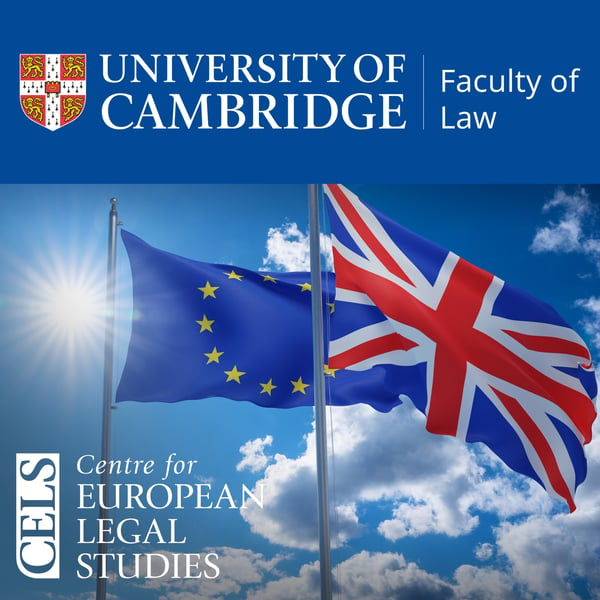'Session 2: External Relations' - Markus Gehring: CELS Brexit Symposium
Cambridge Centre for European Legal Studies (CELS) Podcast
Faculty of Law, University of Cambridge
0 • 0 Ratings
🗓️ 14 March 2019
⏱️ 32 minutes
🧾️ Download transcript
Summary
Transcript
Click on a timestamp to play from that location
| 0:00.0 | Okay, ladies and gentlemen, well, I struggle with the technology. |
| 0:08.0 | I should, whenever I talk about Brexit, I am trying to make a point to reveal my biases. |
| 0:21.6 | As someone who's lived and worked in this country for 15 years, |
| 0:26.6 | Brexit doesn't leave me cold, |
| 0:30.6 | and therefore I need to just briefly sort of reveal that what you might hear is not completely sort of the sober academic. |
| 0:47.1 | This is coloured by the say, Brexit victim perspective. |
| 0:56.5 | On the other hand, as someone who some years ago wrote a textbook on WTO law, |
| 1:03.7 | I feel there is some opportunity to shed some light on where we are in the process and what else might come. |
| 1:20.1 | We have people in the room who are much better qualified to assess where the UK Parliament is going to end up in just a second, |
| 1:39.5 | because I think if someone had said to me three months ago that we still wouldn't know, |
| 1:53.1 | we still wouldn't know what exactly the consequences would be, I would have said, that is absolutely impossible in a well-organized |
| 2:07.6 | country like the United Kingdom. Unfortunately, that is exactly where we are. |
| 2:18.3 | And that is, I think, to a certain extent, the problem. |
| 2:27.3 | Let me re-put my PowerPoint slides. |
| 2:33.3 | Does anybody know how to show this slide yeah oh it's not an ideal |
| 2:44.7 | you download yeah I tried that just now. |
| 2:55.6 | Oh, there we go. |
| 2:56.6 | Good. |
| 2:57.6 | Okay. |
| 2:58.6 | Ladies and gentlemen, what is the effect of the Brexit process on the UK's ability to conclude trade agreements? |
| 3:09.1 | And what are the potential frameworks? |
| 3:10.5 | You've already heard that one of the purposes of Brexiting is so that the UK can enter the |
... |
Please login to see the full transcript.
Disclaimer: The podcast and artwork embedded on this page are from Faculty of Law, University of Cambridge, and are the property of its owner and not affiliated with or endorsed by Tapesearch.
Generated transcripts are the property of Faculty of Law, University of Cambridge and are distributed freely under the Fair Use doctrine. Transcripts generated by Tapesearch are not guaranteed to be accurate.
Copyright © Tapesearch 2025.

